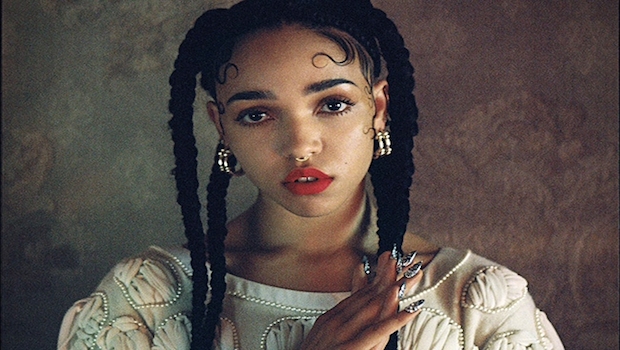Much has been made of the issue surrounding a doctored Reading and Leeds Festival posters, edited to show only the female/partially-female acts performing at this year’s festival.
In the edit, we can see that the low-billed Marmozets are the only act including a female that will be performing on the Main Stage (thus far). Similarly, Wolf Alice are the only act including a woman to be performing on the BBC Radio 1 Stage across the whole weekend. The few other female acts, including Azealia Banks, means that, in total, there are just 9 acts with female members performing at Reading and Leeds this year. Furthermore, in the last 10 years of Reading and Leeds festival, only three main stage headliners have been female-inclusive acts: Arcade Fire, Pulp and Paramore.
This, of course, has led to a typical Twitter scramble to see who can call the R+L organisers ‘sexist pigs’ in the most creative/absurd/potent manner.
However, to throw a spanner in the works of the irrational reaction machine, I think that it is obvious that the Reading and Leeds organisers are not the ones at fault here. Cast your eye northward, to this writer’s neck of the woods, and have a gaze at the T In The Park 2015 line-up, which includes 17 female-inclusive acts. Or have a look at Download festival, which has also only booked 9 female acts.
Now, an obvious statement to make would be to say that this is not just a festival or music problem, but a societal problem. This is, of course, the case. We live in a state where only 22.8% of directors of FTSE 100 companies are female; out of 650 Westminster MPs, only 148 are women; and since 2006, the UK has slipped from 9th to 26th in 2014 in the World Economic Forum Global Gender Gap Report. We know the drill. There is still a gaping chasm in gender equality in the United Kingdom, and anybody who suggests otherwise simply isn’t considering the facts. However, is it simply the case that this spills over into the music industry? Well, yes.
The music industry is dominated by men, of this there is no question. However, when we look at a festival like T In The Park, compared to Reading and Leeds, we have a far more pop music-orientated festival in nature. It simply is the case that women are allowed to be more prevalent in pop music for reasons that can be explained by watching a Nicki Minaj music video. However, when it comes to alternative music, there is no benefit to the rich white men at the top to sell bands like Marmozets. It appears to be the case, therefore, that attitudes towards women when it comes to rock music in particular, are not as open as they should be. This then spills over into the female choices, or lack thereof, that an inherently rock-led festival like Reading and Leeds has.
One of the most popular suggestions on social media appears to be the call for festivals to introduce a kind of quota system to their line-up: a 50/50 split between men and women. However, the problem with this is that there is therefore no reason to say that we should not introduce a festival quota system based on ethnicity, or sexuality, or religion, and so on. The simple fact is that it will not be possible to accommodate the exact number of bands needed for this system. Furthermore, isn’t that just extremely patronising to women? Think about it, it is like having a token black person, or disabled person, or indeed woman on a television show. It disregards the fact that there are many talented black people, disabled people and women in the world, and considers them to be just there to make up the numbers; to meet a quota requirement. It does not improve attitudes nor does it encourage a fair creative industry.
Another social media suggestion is that an organiser should hold a female-only festival, where only women-inclusive acts are allowed to play. This, however, will only lead to further segregation in the industry, even if it is just to serve a point that women can be fantastic artists. On that note, the argument that women just “aren’t as good at music” as men simply doesn’t cut it. It is a trivial course of action to have to take, but to list a few: Stevie Nicks, Bjork, Aretha Franklin and Kate Bush. Then even more recently, FKA Twigs, St. Vincent, Kate Tempest and Lorde are all some of the most interesting and exciting artists in the world right now.
The problem is, like in the rest of society, down far more to attitudes rather than to rules and legislation. Introducing quotas, tokens, and gender-exclusive festivals is not the answer, it is instead fighting fire with fire. The answer is the opposite. We must open up to women in all genres of music, and the rest will follow. This, along with the development of fairer attitudes towards women in society as a whole, will solve our problems. Stop blaming festival organisers for gender inequality, and have a look at what we can do ourselves to improve fairness and equality in the industry.

